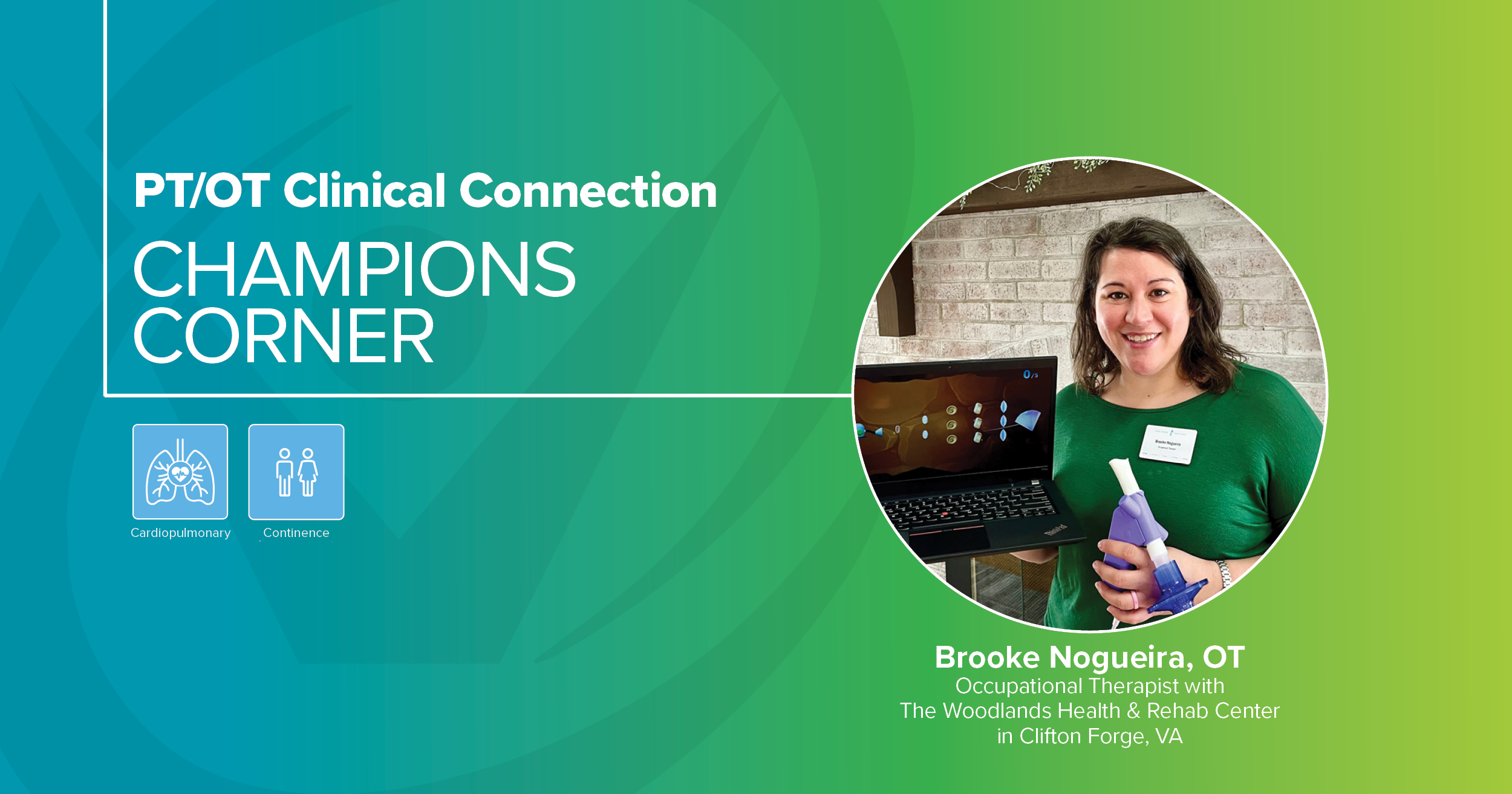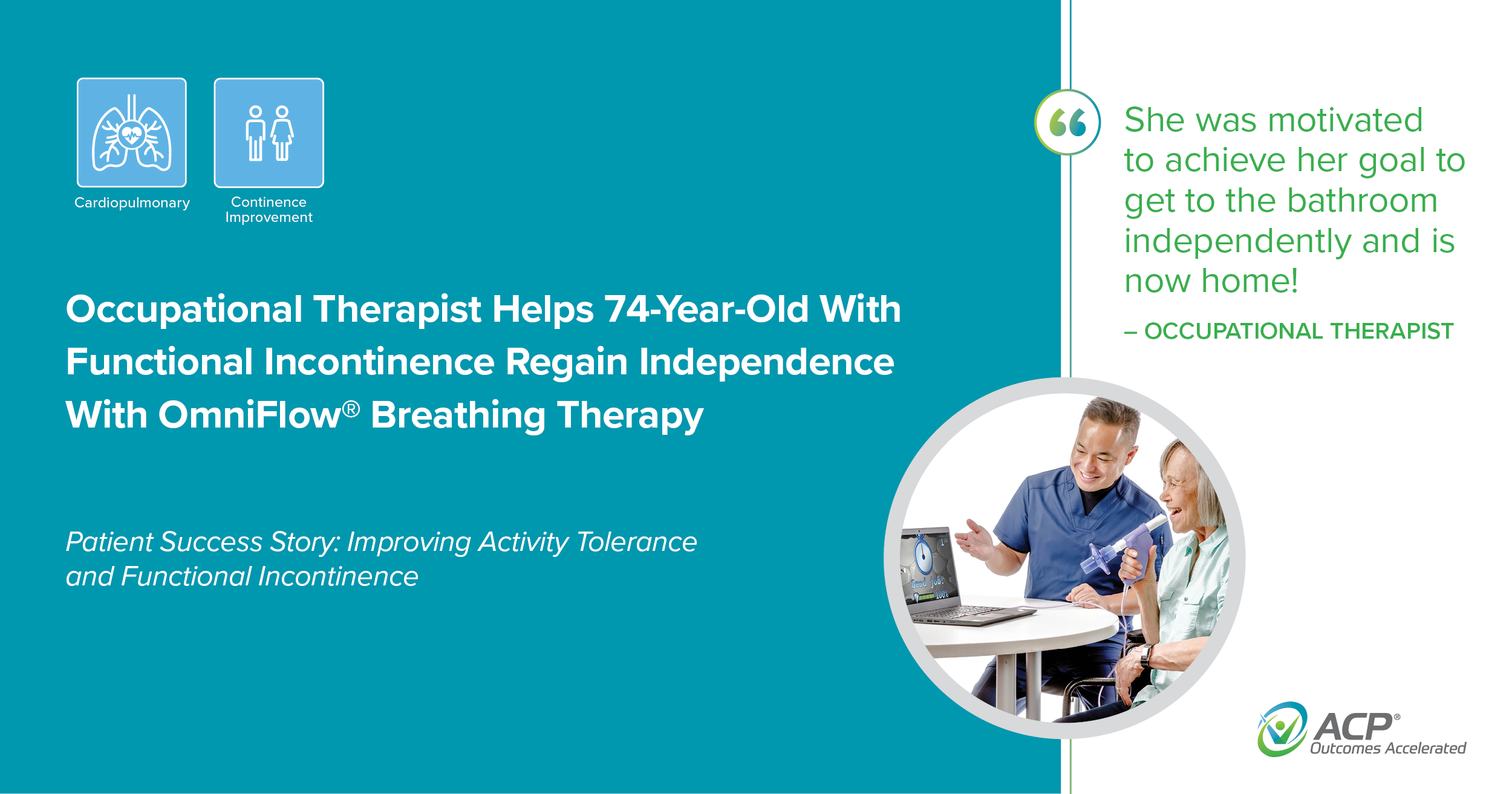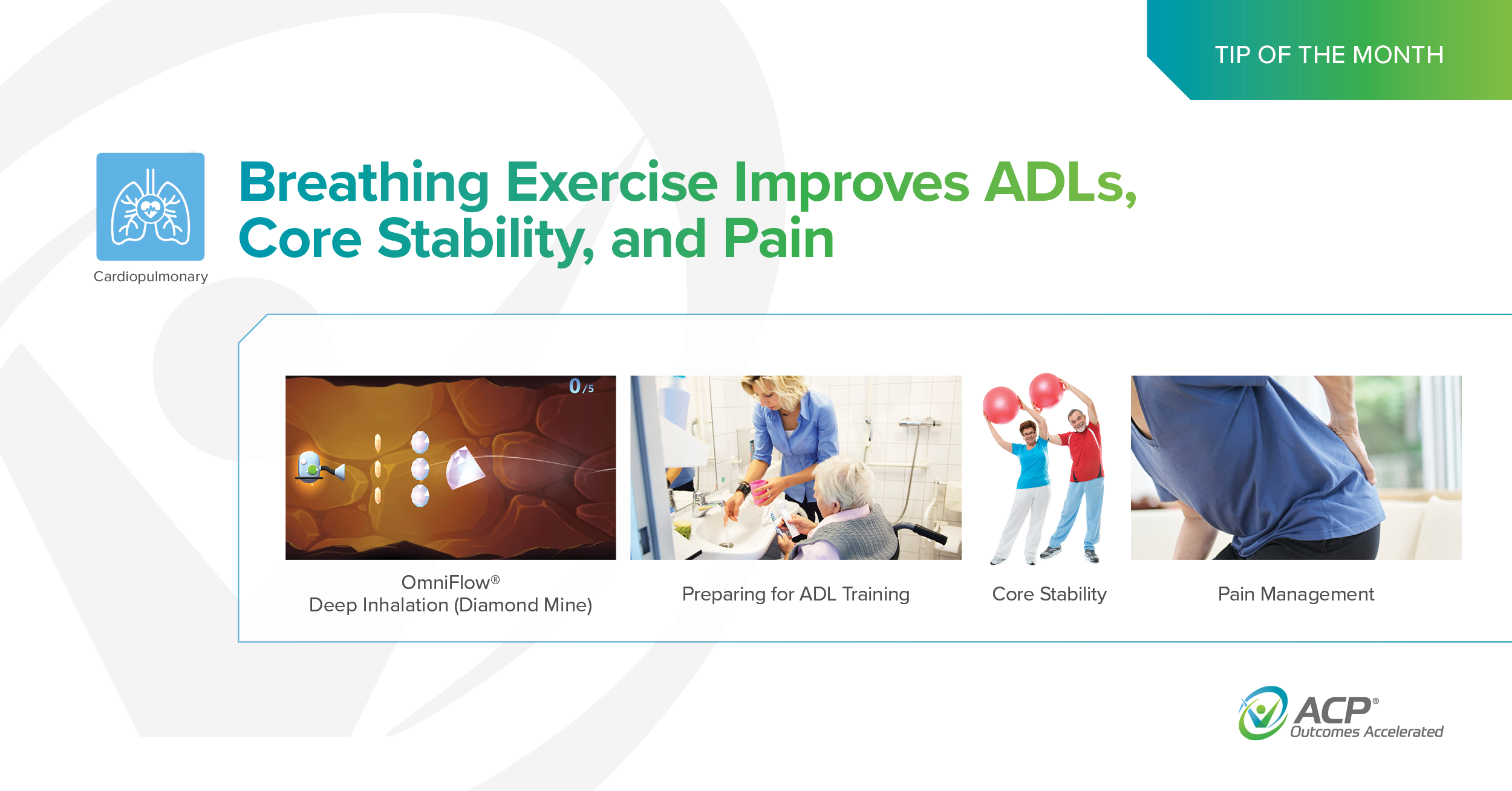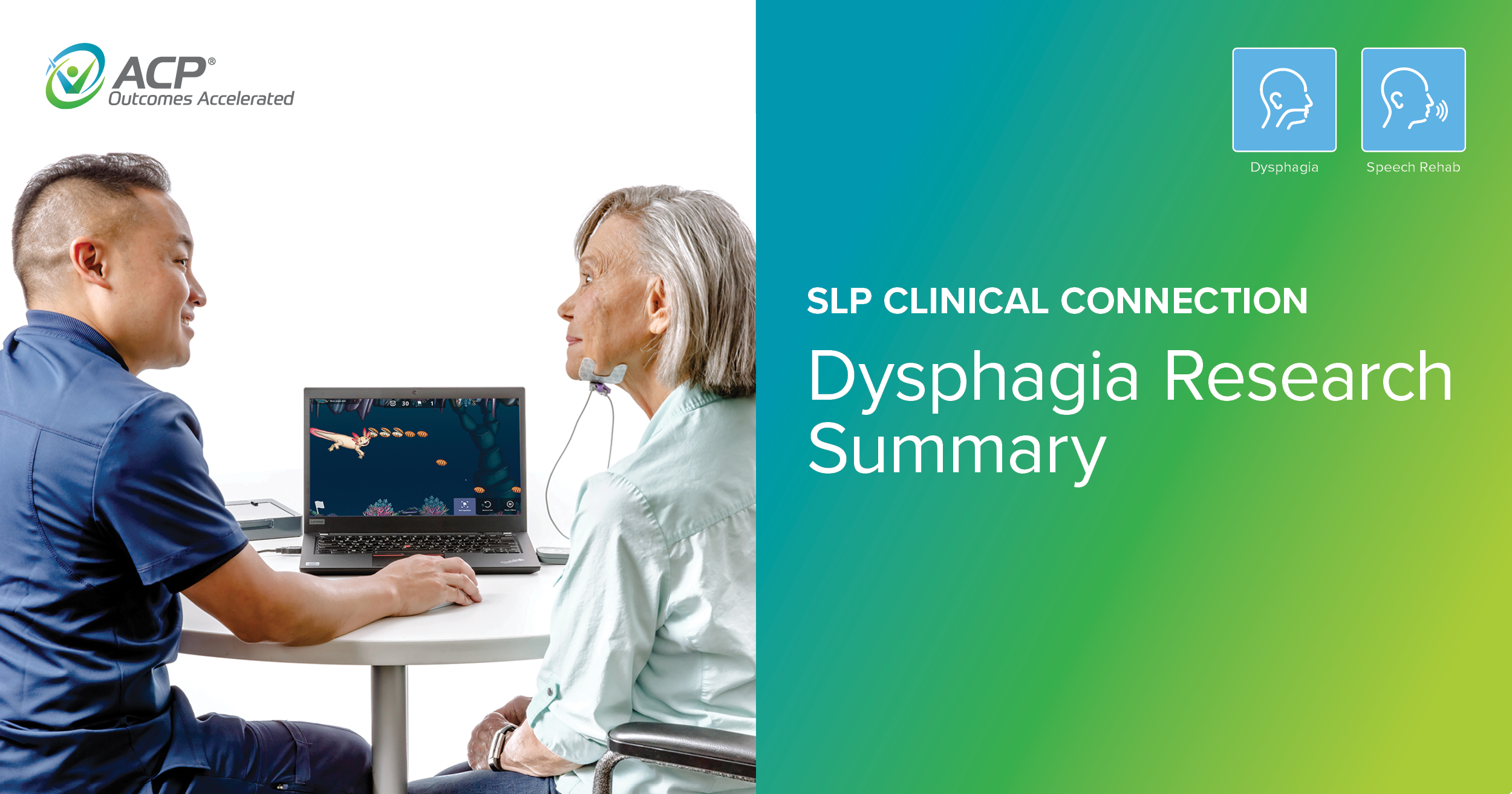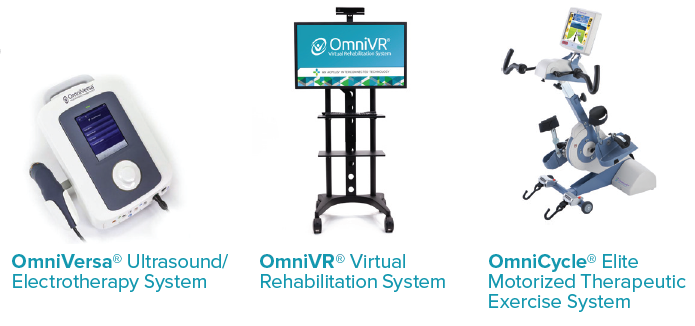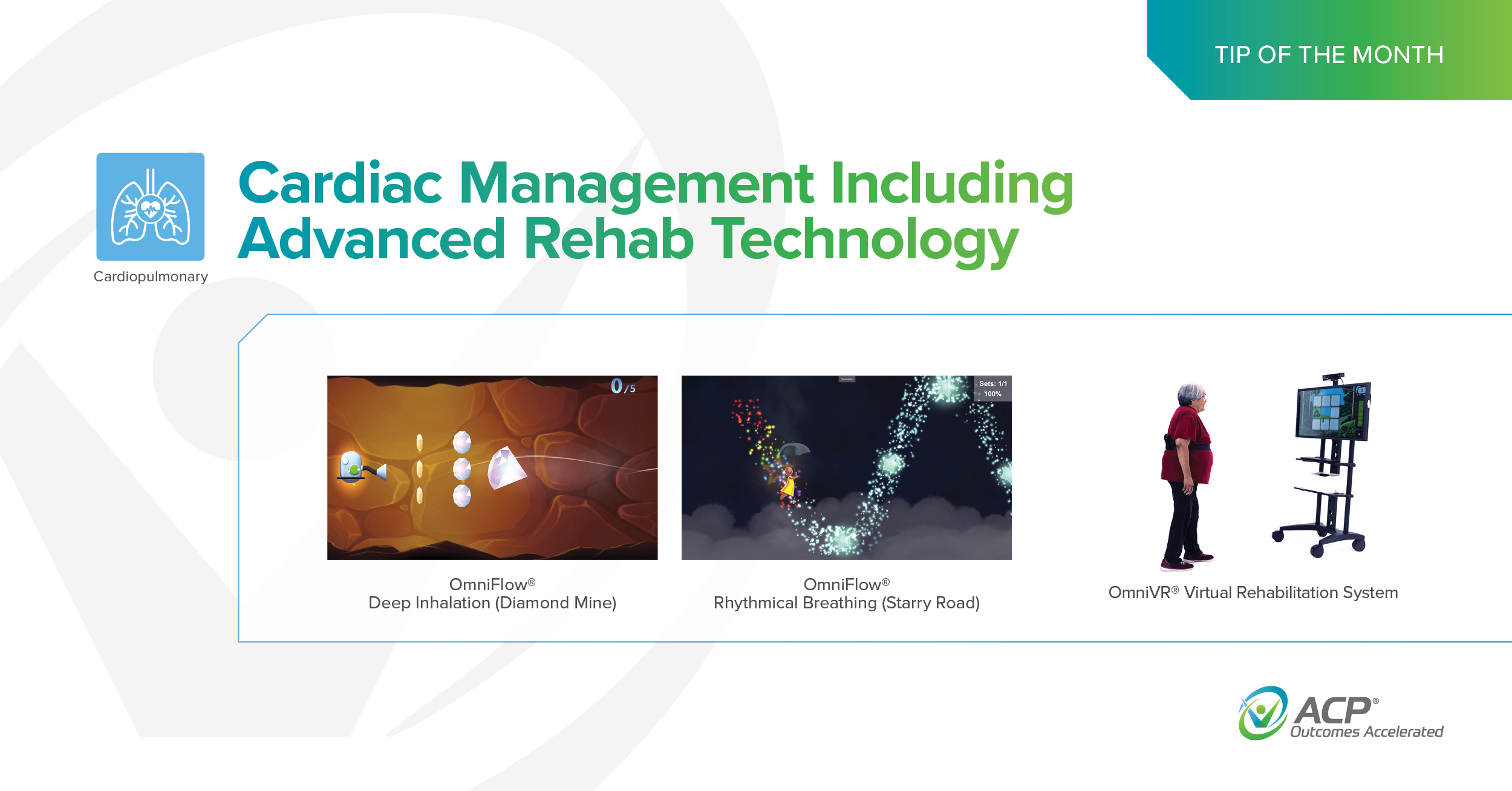
This 77-year-old woman was admitted to Raleigh Court Health & Rehabilitation Center in Roanoke, VA due to weakness and inability to care for herself. She was hospitalized after a stroke where she was also diagnosed with COVID-19. Before the stroke, she was undergoing treatment for metastatic lymphoma (cancer in the lymph system that has spread to the lungs). Prior to hospitalization, she lived alone and was independent with self-care and mobility.
Read More
Topics:
Patient Success Story,
Cardiopulmonary

This 65-year-old gentleman was admitted to Quince Nursing and Rehabilitation Center in Memphis, TN for rehabilitation services following hospitalization due to a stroke. He was diagnosed with oropharyngeal dysphagia (difficulty swallowing). His swallow initiation was inconsistent, and he had difficulty managing his own secretions. He could not take any food or liquid by mouth and a feeding tube was placed. Prior to his stroke, he ate a regular diet.
Read More
Topics:
Dysphagia,
Patient Success Story
OmniFlow + Synchrony: Clinical Application
Many patients currently deal with limitations in breathing or swallowing/speech due to their disease or condition. Breathing and swallowing/speech are so closely coordinated that these limitations may also occur together.
Read More
Topics:
Clinical Connection
Barikroo, A., Im, I., Crary, M., Carnaby, G. (2023). Effects of Age and Lingual-Palatal Pressure Levels on Submental Surface Electromyography Measures. Dysphagia. doi.org/10.1007/s00455-023-10553-6
Read More
Topics:
Dysphagia,
Speech Rehab,
SLP Clinical Connection
This 74-year-old woman was referred to a skilled nursing facility for rehabilitation services with severe debility, decreased functional mobility, increased urinary frequency, and anxiety following hospitalization for acute cystitis (inflammation of the bladder). She has a long standing history of COPD and emphysema with requirement of oxygen supplementation of 4L/min. Prior to hospitalization, she lived independently. This woman’s goal is to be able to get to the bathroom on her own again.
Read More
Topics:
Patient Success Story,
Cardiopulmonary,
Continence Improvement
Breathing impacts everything we do from bed mobility, transfers and gait to ADLs and IADLs. Incorporating patient-specific breathing strategies into a comprehensive rehab program not only addresses breathing impairment due to cardiopulmonary compromise, but also positively impacts pain, balance, function, and ADL performance.
Read More
Topics:
Clinical Tip,
Cardiopulmonary
Galek, K.E., Bice, E.M., Allen, K. (2023). The Influence of Three Feedback Conditions on Performing a Swallow Motor Pattern in Healthy Adults. Folia Phoniatrica et Logopaedica (Karger). doi.org/10.1159/000525634
Read More
Topics:
Dysphagia,
Speech Rehab,
SLP Clinical Connection
This 66-year-old gentleman was referred to a skilled nursing facility for rehabilitation services due to right-sided weakness and general debility. He was hospitalized after a stroke which required thrombectomy (procedure to remove blood clot). Prior to his stroke, he was living with his spouse in a home with a 3-step entry, was independent with all functional mobility, and walked with a rolling walker.
Read More
Topics:
Patient Success Story,
Neuro Rehab
According to the CDC, coronary artery disease (CAD) is the most common type of heart disease in the US. It is caused by plaque build-up in the coronary arteries which slows blood flow. The most common symptom of CAD is chest pain. However, many people don’t have symptoms and only find out they have CAD after they suffer a heart attack.
Read More
Topics:
Clinical Tip,
Cardiopulmonary



.png)

